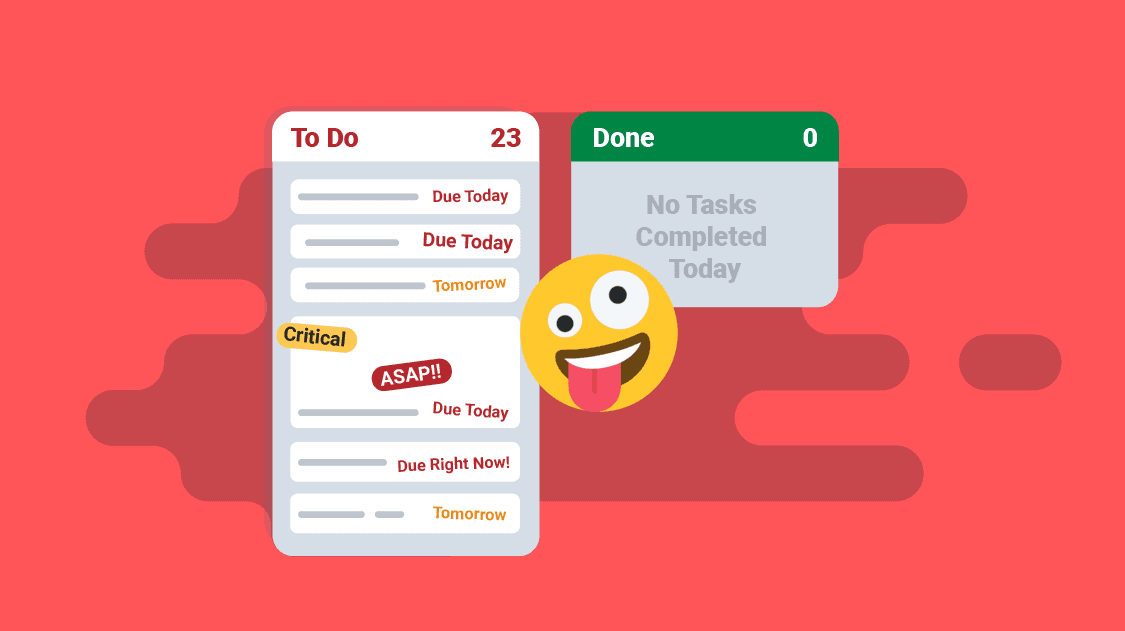Let’s face it. When we have urgent deadlines for projects or tasks, it is because someone else has set them according to their needs. It is our job to meet those needs.
But when everything seems to come at once, it is easy to become stressed and even panicked – how to satisfy multiple deadlines when everything is classified as “urgent?”
Unfortunately, we can find ourselves trying to multi-task, hopping from one task or project to another and then back again, because our minds are muddled and unfocused. What we need is a “system” for prioritizing, as well as some other tactics that will put us on a structured path for getting everything done.
Here are some strategies that you should consider:
Make a Master List
You need to see the big picture. And you need a list of all of the current projects and tasks that are on your shortlist for deadlines. You cannot begin to organize them if you don’t identify them all in one place.
Once you have your master list, you are able to prioritize according to several categories – urgency, potential time involved, complexity, etc.
Identify the Most Urgent of All and then Proceed Downward
Whether you have your list on paper or on a screen, begin color-coding it. Choose a color for each level of priority and highlight each project or task with colors. This will let you modify your list in order of importance.
You need a cascading list based upon the following:
- Urgent and Very Important – these are the top priorities
- Important but Not Quite so Urgent – Place these on a calendar
- Urgent but Not as Important – These are moved to category three. See which of these can be delegated.
- Those that are not urgent and not as important – Take off of your list right now. Put them on a separate list to address later on. They can even be placed on your calendar, but not for right now.
One Potato at a Time
This is an old adage, but it is timeless. If you have ever seen potatoes harvested, you will understand this. You can only harvest one potato at a time. Each is pulled from the ground individually. And you must approach your prioritized list in the same way. Focusing on one top priority and then moving to the next is the only way to remain organized and functioning efficiently.
Estelle Leotard, a freelance writer for Trust My Paper and Grab My Essay, puts it this way: “I often have several writing assignments at a time. What I have found is that I cannot jump from one to the other without having to spend extra time re-focusing each time I make that mental switch. I just have to hunker down and focus on one at a time. It is the only method that really works.”
Delegate, Delegate, Delegate
As you look at each project or task, identify what parts you can and should delegate to other members of your team. Often, you will find that the important but less urgent tasks can be begun by other members of your team, while you and a few others focus on the urgent and important ones right now.
Negotiate
Remember, these deadlines have been set by others. Who are these others? If you are facing impossible deadlines because there are too many urgent and important tasks, then it may be time to do some negotiating with those who have “demanded” the deadlines. Often, they have established deadlines that can be moved back, and you should explore these possibilities. Being honest about the challenges you face is important, and getting some of those deadlines modified can be a huge stress reducer. There is an old saying, “It is easier to get permission than forgiveness.” Letting someone know in advance that the deadline is in jeopardy will open the door for conversation and modification. Use this strategy when necessary.
Get the Right Technology into Play
You need a “command center.” Everyone on your team who is working toward these urgent deadlines needs to be in a collaborative relationship with all members of the team. You need to have in place the technology that allows them to report progress, to communicate with any or all team members at the same time, and to identify specific challenges they are facing in meeting the challenges of their individual tasks and deadlines.
In short, you need a project management platform – one that is user friendly, and that allows a streamlined flow of information. Check out ora.pm – it may be exactly what you need! With Kanban, time tracking, reporting, and consistent team chat, this is a system that can both organize and streamline the workflow.
Think About the Effort That Will be Involved
You can succumb to the mental “fatigue” of feeling overwhelmed, and this leads to procrastination and lower productivity. So, take a look at that urgent and important category again. Are there some tasks/projects that will require shorter spurts of time and energy? If you can get these accomplished rather quickly, do so. What you will find is that just getting them off of your list leads to a sense of accomplishment that will motivate you to tackle the larger, more complex tasks with more energy and focus.
Donald Fomby, an editor for Studicus, has this to say: “In my 15 years as an editor and re-writer, I have learned one thing. When I have large, complex projects, interspersed among smaller, easier ones, I find I do best when I alternate among them. I take on a smaller, simpler one and then find that I have the motivation to attack a larger one.”
Be Realistic
There are only so many hours in the day. And each of your team members has only so many hours in their days. You cannot accomplish the impossible, and you need to be honest about that, with yourself, your team members, and those who have set the deadlines you are supposed to meet. Things may need to be modified, and you must take the initiative to get that done. Do not be shy. If urgent deadlines are not realistic, then step up and say so.
Avoid Distractions
There are distractions throughout our days. If we give in to them, we are sunk. There are calls, emails, texts, and even social media all tempting us to take a break. The problem with this is that it takes time for the brain to re-focus on the task at hand, so additional time is lost. The time for a “break” is after a specific task or project has been completed. Then a few minutes will do no harm. Self-control is hard but necessary.
These Nine…
Take a long hard look at these nine strategies for working “smarter” when you have multiple urgent deadlines. If you can incorporate them into your approach to meeting the challenges of juggling several projects or tasks at the same time, you will have a more structured, organized approach that will promote greater success.
Author Bio: Kristin Savage is an experienced writer and blogger for a number of services, including Best Essay Education, Wow Grade, and Supreme Dissertations. As she herself states, juggling the writing tasks and deadlines of multiple projects have forced her to develop a “system” that works for her. Still, she finds time to perform as a keyboardist and vocalist in a local band and to volunteer with an animal rights organization. You can find her on Facebook.

If you’ve enjoyed this article and would like to read more quality content like this, subscribe to Ora’s blog from the Subscription form below 👇


